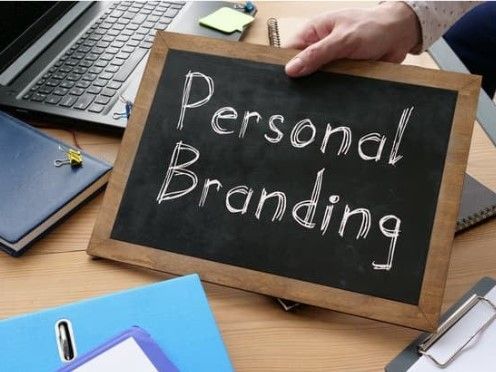The purpose of the job interview hasn’t changed. It’s to find the best candidate for the job.
Even though employers continue to use interviews to find their ideal candidate, almost everything else about the way they conduct interviews has changed. It’s no longer a matter of landing your dream job based on a single, face-to-face interview. In 2018, job seekers can expect a more complex interview structure involving multiple interview rounds, multiple interviewers, multiple metaphorical hoops to jump through, and multiple new technologies used throughout the entire process.
It’s no wonder job seekers find it hard to keep up-to-date with what to expect at an interview.
Lucky for you though, hope is not lost.
We introduce to you... the Modern Interview.
Hello, Modern Interview
The modern interview no longer relies on a traditional (or straight-forward!) approach.
As companies adopt new innovative technologies and ways of managing their business, company structure, and culture, a more progressive form of interview has taken over.
Our modern interview guide will help job seekers understand:
- How to get ahead of the competition and secure an interview;
- The number one thing you need to do before an interview to ensure you're not left unprepared;
- The modern interview technologies hirers are using and how to make sure you're ready for them; and
- The top interview questions of 2018 and how to tackle them
Before Your Interview
There are many hurdles and challenges that job seekers face throughout the job application and interview process. From before you even submit your application, higher expectations of job candidates has become the norm. Read on to find out what to expect before you even secure an interview and what you can do to get ahead of the competition.
1. Manage And Build Your Online Presence
One of the biggest game-changers of the modern interview is that interviewers are now more informed about job applicants, thanks to social media. What’s more, interviewees can (and must) leverage the information online to adequately prepare for their interview.
Accessing candidate information on social media and other online platforms has never been easier. From LinkedIn to Facebook, Twitter and Instagram. Our social connectivity has also given hiring managers platforms to actively scout for talent, allowing them to communicate and contact prospective applicants via social media. In particular, LinkedIn, acting as the leading social network for businesses and professionals to meet, has created a platform where employers and job seekers can interact and develop professional relationships.
It’s not enough to merely manage your online presence, you must build it.
It is important to remember that whatever you post on social media will remain on the Internet and cannot be permanently deleted. One way to overcome any negative repercussions attached to your social media activity is by cleaning it up and ensuring that it is in a condition acceptable to the professional environment.
Not only should you clean up your social media for when hiring managers are scouting or vetting you as an applicant, you can also use social media proactively to research more about the company.
Here are a few ways you can use social media to prepare for a job interview:
- Follow the company on their social media channels and get a feel for their company values, tone of voice and personality by reviewing recent posts.
- Read the “About Us” section and learn about the company’s goals and background.
- Look up your interviewers on LinkedIn. Make a note of what they look like so you know who to look for at your interview.
- When researching, start thinking about what questions you have about the company so you can ask them at your interview. You can also use our guide to the 7 questions you MUST ASK at your next interview.

Social media is here to stay. Why not use it to your advantage to stand out from the crowd and increase your knowledge of the company?
2. Beware, It’s Competitive Out There
Gone are the days where employers were limited to a handful of qualified candidates suitable for the job. The Internet and globalisation have opened jobs up to more candidates, making competition greater than ever.
ABC reports that too many university leavers are graduating jobless in Australia, making the job market increasingly competitive. Forbes has reported that successful people tend to change jobs more often (every three to five years) which is also adding experienced job seekers to the candidate market. Competition has also become greater than ever with more professionals expanding on their academic qualifications and practical experience and with the rise of the international movement and global connectivity, employers also have access to interstate and international talent.
There are also countless tools and programs that help bring job seekers and employers Together. Seek, LinkedIn, TalentBin, and so many more in the making (Google Jobs is on the way), the competition is only getting harder to compete with.
Put simply, the advancement of technology and innovation is increasingly making it harder to be noticed when competing against a global pool of talent. So what can you do to stand out from the crowd?
3. What About The Application Process?
After making yourself social media ready and finding your unique qualities that stand out in a pool of candidates, the modern job application process comes next. Enter the world wide web.
Online job applications are now the predominant way to apply for a job with paper submissions being a thing of the past. The use of an online platform for job applications allows a company to incorporate additional elements to the application process such as online assessments, requirements for detailed cover letters, and so on. Job seekers should be prepared to spend more time on each job application, ensuring each one provides all of the information required by the employer.
Communication methods during the application process have also changed. As a job seeker you can expect phone screenings and the use of scheduling tools such as Calendarly to lock in your interview time.
At Your Interview
Congratulations! You’ve mastered social media, navigated the application process, caught someone's eye, and landed yourself an interview. Read on to find out what to expect at your modern interview and what you can do take it in your stride like a pro.
1. There Probably Won’t Be A Boardroom
Remember the days when all important corporate decisions including hiring new candidates meant being stuck in a stuffy boardroom?
Advancements in online software platforms has changed the way we communicate in the business world. The modern interview may invite you to step outside of the boardroom and into a new interview format. You will be expected to adapt to these recent interview innovations, so start familiarising yourself with a few of the most common modern interview settings:
The Video Interview - Video is here, and interviewers are using it.
Some common video platforms that interviewers are using include Skype, Zoom, Montage, HireVue, and SparkHire to name a few.
The Social Interview - Would you like a coffee with that?
A prospective employer arranges a meet and greet over a cup of coffee. It’s actually a social interview. The conversation you have with your interviewer here may be a more “getting to know you” approach. The social interview is a way to see what kind of person you are, how you interact at a social level, and whether your personality would be a good suit for the team.
The Panel Interview - Okay, we admit there may be a boardroom involved here.
Panel interviews are probably the most intimidating of all types of interviews due to the overwhelming number of interviewers at the same time. Panel interviews are utilised by companies to see how a candidate manages themselves when put under pressure. The best way to handle a panel interview is by engaging with all the interviewers ensuring that eye contact is made across the room. Be prepared for fast-paced questions and cross-conversations from the interviewers.
Multiple Rounds - Multiple hoops to jump through.
Some modern interviews incorporate a mixed interview process where there are multiple stages and styles of the interview.New Paragraph
2. You Have To Sell Yourself
As competition for talent continues to increase, it has become more challenging to sell to top companies on why they want YOU rather than someone else to join their workforce. Being good at what you do is important, but you need to be able to sell it.New Paragraph
Not a salesperson? Here are our top tips to help you sell yourself in an interview:
- Be confident: We know it’s hard when you’re nervous, but try to project confidence when you’re speaking. Know what your strengths and weaknesses are and own them. Know what you want and why you want it.
- Keep it simple: Trying to answer a question but have too much you want to cover? Choose the best points and bullet point them!
- Have someone sell you to you: Having trouble identifying your best selling points? Ask your friends, family or colleagues to describe you and your skills.
- Be humble: Sell yourself, but don’t be cocky. Remember, they still have to like you!
3. You’ll Have To Answer The 2018 Edition Of Interview Questions
Interview questions can be categorised into three main categories:
Behavioural - examination of the manner in which an individual acts or conducts themselves towards others. This includes the way they approach teamwork, their communication skills, and their leadership attributes. For example:
- Tell me about a difficult situation your team faced and how you handled it collectively?
- Tell me about a situation where you had to solve a difficult problem. What did you do? What was the outcome? What do you wish you had done differently?
Cultural Fit and Personality - relates to the ideas, customs and social behaviours of an individual in society as well as their characteristics and qualities that form the distinctive character of that individual. For example:
- How do you organise yourself and your day?
- If I were to poll everyone you’ve worked with, what percent would not be a fan of yours?
Entrepreneurship and Initiative - identifies the ability of an individual to make business decisions based on risk management and the ability to assess and initiate opportunities independently. For example:
- If you had $40,000 to build your own business, what would you do?
- What didn’t you get a chance to include on your résumé?
The key takeaway here is to enable your responses to be flexible and showcase you. It’s important to be true to yourself when answering questions to ensure you don’t end up in a job that isn’t the right fit for you.
4. Ask The Right Questions
You get to the end of your interview and all you want to do run outside and call your recruiter, partner, mum, neighbour, friend… whoever it is that’s supporting you on your job seeking journey.
Resist the urge to jump out of your seat before it’s your turn to ask questions.
Asking questions is your turn to find out about the position, your boss, and the company to make sure it’s the right fit for you.
If you’re looking for a headstart to nailing what to ask, download our guide 7 interview questions you must ask at your next job interview. We've also included one question you should NEVER ask.

After Your Interview
1. Take Initiative And Follow Up
Instead of ending the interview with a “keep in touch” (as most of us do), take initiative and find out what the next steps are.
By making the first move on what happens after the interview, you are showing your interviewer that you are interested in the job.
After you leave the interview, you also need to follow up.
Firstly, connect with your interviewer and follow the company on LinkedIn. You may also choose to follow the company on other social media channels if they have them. Next, send a thank you note via email or through the platform used during the application process - did you organise your interview via LinkedIn InMail? Send your thank you note there.
By doing so, you are displaying strong interest in the job and a professional attitude to your prospective employer.
A Final Word On The Modern Interview
The job seeking process can be overwhelming, and with employers continually integrating new business and technological innovations into the interview process it can be hard for job seekers to know what to expect.
However, one thing remains constant. Employers are looking to hire the best candidate for the job, and Veritas Recruitment can help make you that candidate by connecting you with the right job for you.
Don't forget to download our free guide to the 7 questions you MUST ASK at your next job interview and also find out the ONE QUESTION you should always avoid asking if you want a job offer.

Get in touch with us to find out how we can help you navigate the Modern Interview and land your dream job.
Email: jobs@veritasrecruitment.com.au
Phone: Clayton (03) 9535 2111 | Essendon (03) 9948 9499 | Melbourne CBD (03) 9058 3000 | Parramatta (02) 9891 7400
Date published 06/06/2018




